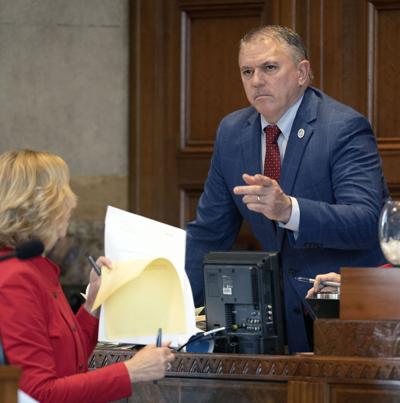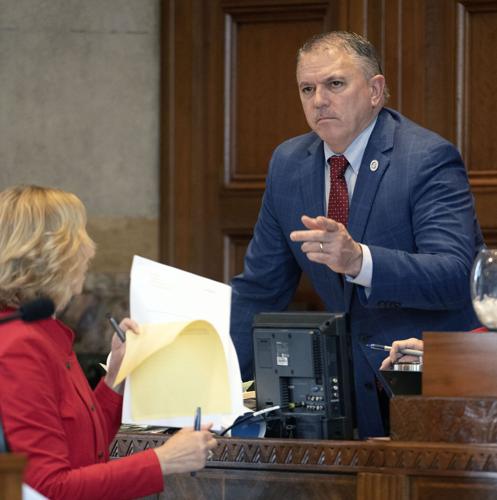It would probably surprise casual followers of the Louisiana Legislature to learn that veto sessions — with lawmakers returning to the state Capitol to try to override vetoes by the governor — are built into the normal process. That’s because, until a couple of years ago, they just didn’t happen.
While these sessions are scheduled by default for 40 days following the end of a session, a majority of either House or Senate members can call them off by simply saying they don’t want to meet. Doing so was business as usual in the old normal, when cancellations were as predictable as the suffocating July heat, and time away from the State Capitol was deemed more desirable than any opportunity for political posturing.
Friday’s news that legislators decisively opted to reconvene this week suggests we’ve entered a new normal.
It will be the third year in a row with a veto session, and the first since an increasingly partisan Republican Legislature finally achieved two-thirds supermajorities in both houses. That’s the magic number for overriding vetoes if — and it’s a big if — Republicans unite against the Democratic governor.
I should mention here that many lawmakers reject the idea that a more confrontational attitude toward governors — this is one example; the rejection of heavy-handed but once routine gubernatorial influence over the choice of legislative leaders is another — is a sign of growing nationalization of politics in Baton Rouge. The real explanation, they would argue, is that the Legislature is simply asserting itself as a coequal branch of government.
Well, sure, that’s part of it. But a brief glance at the list of topics up for consideration in the veto session points not to institutional independence but election-year grandstanding at its most blatant.
The lead driver is a bill to ban gender-affirming care for transgender youths, an idea that has been adopted by conservative legislatures across the country even though, as Gov. John Bel Edwards put it, it serves no legitimate state interest and harms already vulnerable kids. Also potentially up for review are two more bills that also basically mandate official bullying, one to prevent teachers from using students’ pronouns of choice without parental permission, and one that would block public school employees from talking about gender identity and sexual orientation.
Are any of these things high on the list of what’s holding Louisiana back? Please.
Other bills that Edwards vetoed, and that lawmakers might try to enact over his objection, also line up with divisive GOP priorities. One would ban schools from requiring that students be vaccinated. Another would allow 17-year-olds accused of violent crimes to be incarcerated with adults. Yet another would require an annual voter canvass, an idea that goes right to the question of whether efforts to supposedly secure elections might wrongly keep some people from being able to vote.
Politicized issues drove previous veto sessions as well. In 2021 lawmakers tried and failed, to leadership's immense embarrassment, to override Edwards’ vetoes of bills barring transgender students from competitive school sports and allowing people to carry concealed firearms without a permit. Last year they succeeded in overriding his veto of a map for a new district in the U.S. Congress; it created five majority-White districts and one that’s majority Black, even though about a third of Louisianans are Black. After a U.S. Supreme Court decision rejecting a similar map in Alabama over Voting Rights Act concerns, the districts will soon be redrawn anyway.
This year the odds are in favor of achieving at least some overrides.
Edwards is on the right side of history, but at this late date in his tenure, he’s got little he can offer lawmakers in exchange for their support. There are no more projects to fund — or not — in members' districts now that his final budget has been approved, and Republicans won't want his help in the fall elections, although some might appreciate a subtle wink to Democratic voters on their behalf. Louisiana governors are powerful and Edwards remains so, but at this point he’s a true lame duck.
And that prompts an intriguing question about where we are in the evolution of the Legislature.
If all this muscle-flexing is truly in the interest of institutional independence, we’d expect lawmakers to approach the next governor just as aggressively, even in the entirely likely scenario that Edwards is replaced by a Republican. But if the opposition is really about party politics and ideology, they’d likely fall in line with a future governor of their own party.
We won’t know the answer until — and if — it happens. But I know where I’d put my money.



